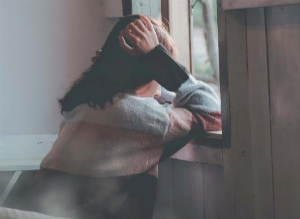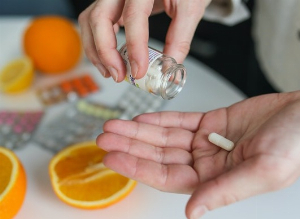The Psychological Impact of COVID-19
Published 12 Nov 2020 • By Gilda Teissier
When we talk about the consequences of COVID-19, we generally think about the physical and economical effects. But, we often neglect to think about the psychological impact that the pandemic is having in the general population.
Change of habits, social isolation, fear of human contact, and even monetary and human losses are not issues that someone can easily overcome.
What are the main psychological consequences of the COVID-19? How to know if I am suffering from these psychological consequences? Is everyone at risk? What can I do to take care of my mental health?
We tell you all about it in our article!

What are the main psychological consequences of COVID-19?
A pandemic is not uncharted territory for human kind, but it is true that awareness for mental health is quite new when related to a pandemic. Nonetheless, we do know much about the psychological impact that wars or natural disasters can have, most notably PTSD (post-traumatic stress disorder). And that kind of shock or disruption resembles, from a psychological point of view, the public health emergency that we are experiencing today.
According to a recent psychological study, the main psychological consequences that are currently being observed and that will continue to develop in the upcoming months and even years are:
- Depression: This can have many sources, either people who are already prone to depression, who with all these changes feel that is too much to handle, or people who have never experienced it, but due to a mix of circumstances, mostly described in the list below, find themselves struggling to keep up with their old selves.
- Uncertainty: This is a great burden that affects psychological health. The feeling of not knowing what is happening or when the situation will end creates stress that can generate anxiety, and if not treated well, can trigger chronic anxiety or stress. Another risk with this is feeling like one needs to be constantly searching for information, which only leads to being over-informed and probably over-anxious.
- Anxiety and fear: These emotions are a consequence of the uncertainty that COVID-19 is generating. Catastrophic and anticipatory thoughts may appear, putting you in the worst and most improbable scenarios, hence generating great discomfort.
- Stress: This can be caused by uncertainty, job loss, fear of infection, boredom or the loss of a loved one. It may also lead to behaviours such as increased consumption of alcohol, tobacco and even drugs.
- Loneliness: This is especially the case in countries where there is an imposed lockdown and people are forced to stay home. Nonetheless, not being able to see friends and family and socialise as before can have the same impact; even if you can go out and see others, not being able to touch them or spend as much time as before can result in feelings of loneliness.
- Fear (of contact with others or of leaving the house): extreme fear of infection, or even of the symptoms of obsessive compulsive disorder (OCD), may manifest themselves in people who have been over-informed about COVID-19. Fear can also be spotted in those who use intensive hygiene routines to avoid infection; these routines may temporarily help to reduce anxiety, but also largely turn them into OCD behaviours.
- Somatisation: This can be defined as the physical manifestation of psychological distress, and goes hand in hand with fear and PTSD. A rise in cases of people who feel they have a non-existent health issue when it is in fact due to their increase anxiety and/or depression, has been observed.
- PTSD: This final consequence can manifest itself in different ways - insomnia, pandemic-related dreams, dissociation from reality, substance abuse, etc.
At the same time, less apparent problems have also been noted, especially in those who live in countries where a lockdown has been imposed and who continue to work. These people have been shown to experience greater difficulty in concentrating, causing them to be less efficient in their work and which leads to a psychological cycle of feelings of rejection of self and work.
For people with a chronic illness, COVID-19 may not only bring all of the effects mentioned above, but may also cause complications in the way they manage their condition, thus causing additional stress due to lack of information or support.
Is everyone at risk?
Yes, everyone is at risk, as we are all social beings who need to interact and constantly struggle to adapt to change. However, there are some groups that are more vulnerable than others.
On the one hand we have all those with chronic illness, who are affected at different levels by the pandemic and who may be experiencing limited access to their treatments as well as additional stress. Within this group, people affected by mental illness are the most vulnerable and should take the greatest care to adhere to their treatment as closely as possible and seek help if it all begins to feel like too much.
On the other hand, according to Lauren Brinkley-Rubstein, Associate Professor of Social Medicine at the University of North Carolina at Chapel Hill, the groups most at risk of suffering the psychological effects of COVID-19 are women,young people and health workers orcaregivers.
Also, contrary to popular belief, people who live alone and have gone through quarantine alone are not statistically at greater risk than people who quarantined with family or friends, because not all family situations are good and therefore mental health can be worsened if social interaction is not ideal. Therefore, the greatest risk is being in an environment that does not help you to feel calm and content.
How do I know if I am already suffering from psychological consequences?
In addition to the above-mentioned psychological symptoms or discomforts, you may be suffering from COVID-19-related psychological consequences if you notice that you are not feeling or behaving like your normal self.
"Just basic everyday things, like not feeling motivated to take a shower or having interrupted sleep, could be a sign." According to Professor Shankman from the UIC Psychiatry College of Medicine, if you notice a big difference in your daily behaviour, such as not being able to focus on your work or tasks or taking care of your children,not wanting to go out even when necessary, losing interest in things you used to enjoy, having less energy, mood swings etc., it may be time to seek help.
What can I do to take care of my mental health?
There are many tips that you can follow in order to keep a healthy mind-set during these times and to help you cope with the negative thoughts and situations that can arise from this pandemic.
Create and maintain a daily routine that allows you to stay motivated and have interactions with others, so that social isolation and withdrawal does not become your default state of being. Professor Shankman advises maintaining a routine similar to the one you had before quarantine or lockdown, such as continuing to get up at the same time each day, dressing for work as you normally would, and engaging in physical activity. This includes socialising, even though you may have to do it remotely. Online tools such video calls or chats can help you keep in touch with friends and family.
Learn relaxation techniques to lower anxiety levels and avoiding negative coping mechanisms involving alcohol or drugs. These techniques can also help when having PTSD symptoms and anxiety.
Limit the time that you spend searching for and reading news about COVID 19 and instead spend it a hobby or activity that you enjoy. This will help you avoid catastrophic thinking and anxiety, as well as unnecessary stress.
Keep taking your medication(s) as you did before the pandemic and try to respect your doctor’s recommendations as much as possible. It is true that hospitals and doctors are overwhelmed with work due to the coronavirus, but many are still dedicating significant time to their patients and are even giving online assistance and consultations.
Seek out professional help if you think you need it. Many universities and government institutions have started psychological hotlines to help people in need. In the UK, the NHS has provided the following list of emergency numbers that you can call if needed:
- The Samaritans: emotional support 24 hours a day - in full confidence. Call 116 123 or email jo@samaritans.org.uk
- Shout Crisis Text Line: for support in a crisis, text Shout to 85258.
- Anxiety UK: Charity providing support if you have been diagnosed with an anxiety condition. Call 03444 775 774 (M-F 9:30am-10pm, S-S 10am-8pm)
- Rethink Mental Illness: Support and advice for people living with mental illness. Call 0300 5000 927 (M-F 9:30am-4pm)
- SANE: Emotional support, information and guidance for people affected by mental illness, their families and carers.
Call 0300 304 7000 (Daily 4:30pm-10:30pm)
Peer support forum: www.sane.org.uk/supportforum
In conclusion:
Experts agree that there could be a lasting impact on us all, as we are forced to endure challenges that most of us have never encountered before. Therefore, it must be taken into account that psychological effects may appear with delay and may have a tendency to become chronic, as is usual in the course of post-traumatic stress, and other pathologies related to quarantine measures.
Therefore, it cannot be forgotten that mental health is as important as physical health. The best thing is to be your own ally and show yourself some love by not being afraid or embarrassed to ask for help if you feel something is not right.
Was this article helpful to you?
Share your thoughts and questions in the comments below!
Take care!
Sources:
The psychological impact of COVID-19 on the mental health in the general population. Oxford Academic
Mental health consequences of COVID-19: the next global pandemic. Scielo
Consecuencias psicológicas.Universitat de Barcelona
COVID19 cuáles son los efectos psicológicos del aislamiento.IPSOS
Efectos psicológicos COVID19. Fundación lucha contra el SIDA
La huella psicológica del COVID19. ABC
APA Coronavirus Resources. APA
Global Mental Health in the time of COVID-19. Harvard Health Publishing

 Facebook
Facebook Twitter
Twitter


